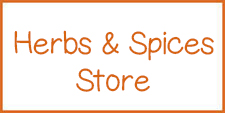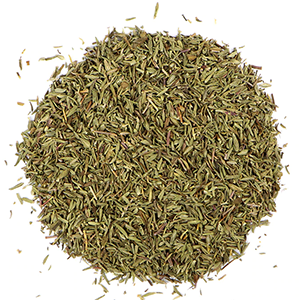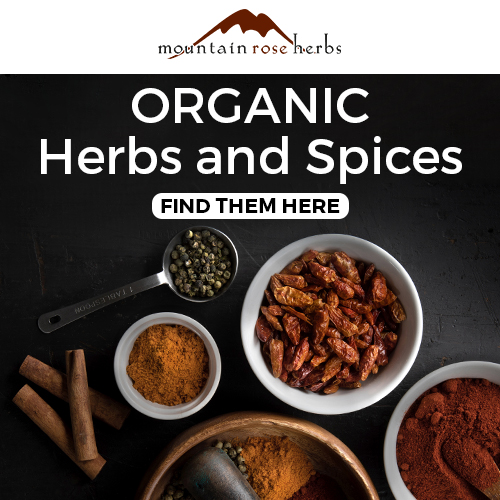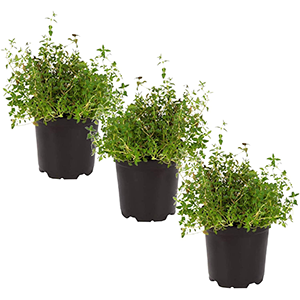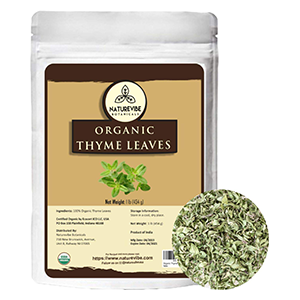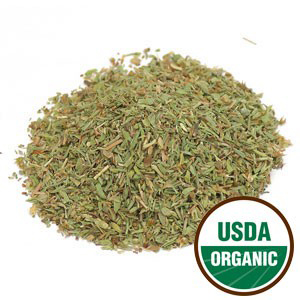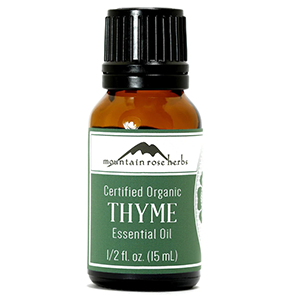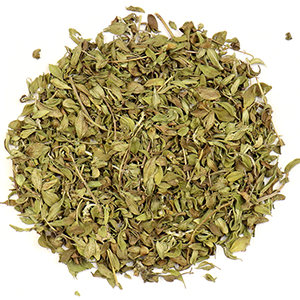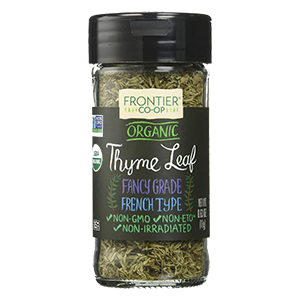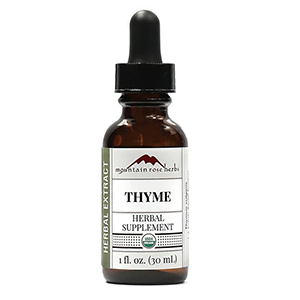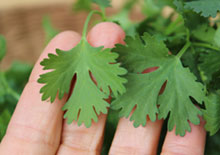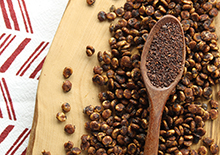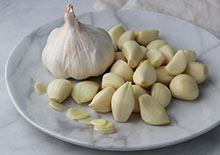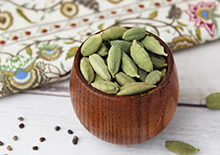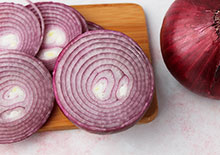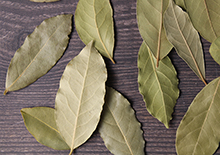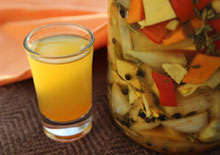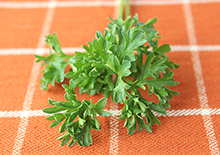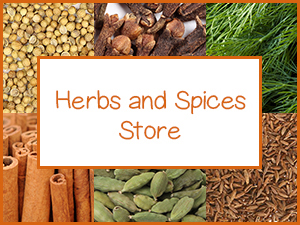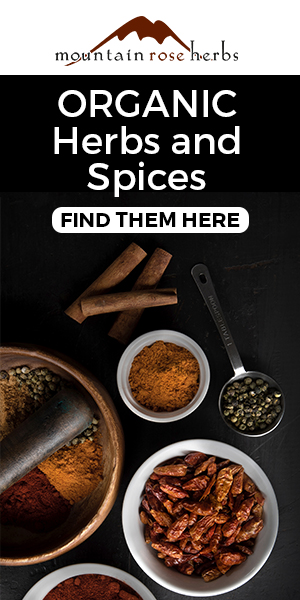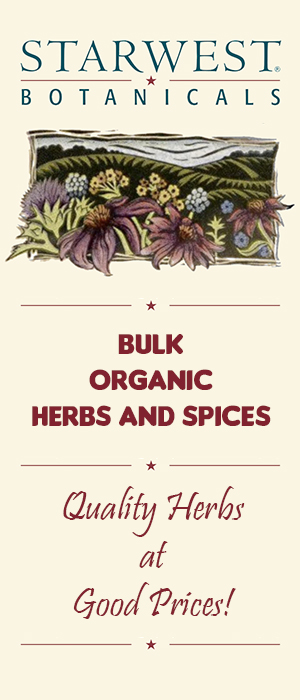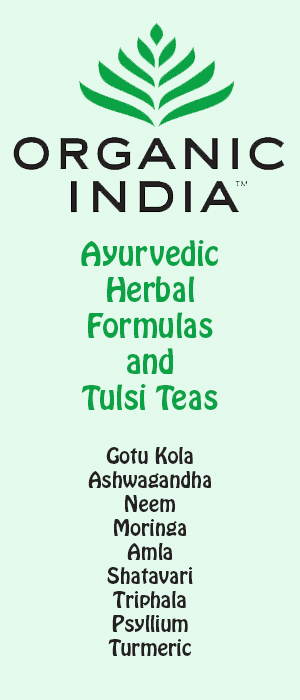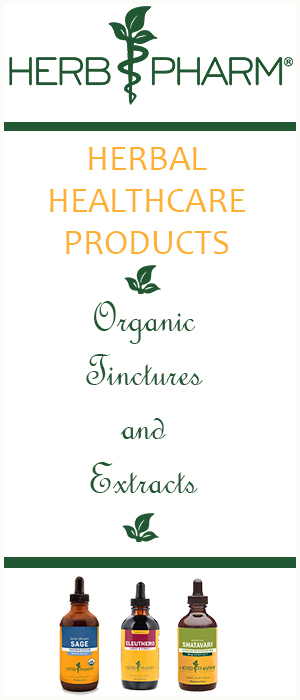- Home
- Herbs and Spices
- Thyme Leaves
12 Things About Thyme Leaves and Their Unique Uses
Mint Family | Species | Symbol of Courage | Main Constituents | Sore Throat Remedy | Thymus Gland | Mood Uplifting | Respiratory Aid | Antimicrobial | Antiseptic | Food Preservation | Culinary Spice | Precautions | Shop
1) Thyme Leaves are From the Mint Family
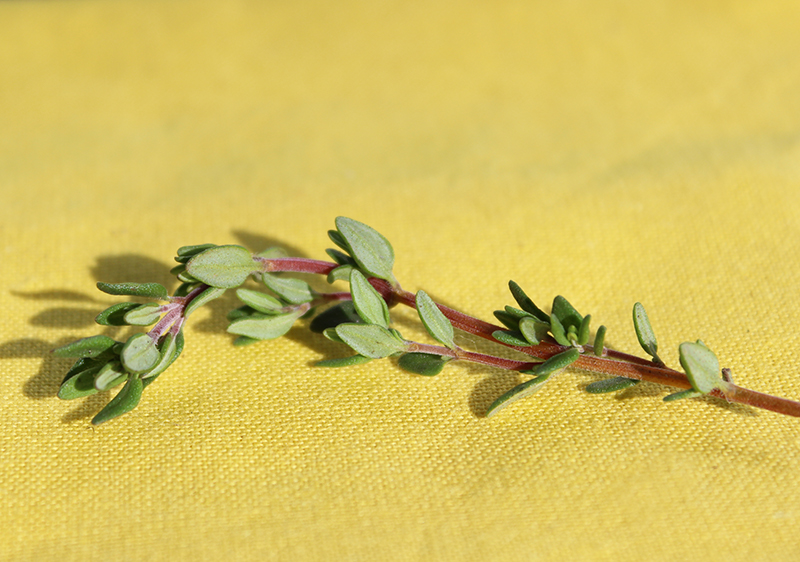
Thyme is an herbaceous woody-based perennial that comes from the same mint family as other popular herb and spice varieties such as sage, oregano, rosemary, basil and lavender.
The thyme plant, with its very tiny oval-shaped leaves, has the smallest leaf size of all these herbs.
2) Thyme Species and Cultivars
Table of Contents
Mint Family | Species | Symbol of Courage | Main Constituents | Sore Throat Remedy | Thymus Gland | Mood Uplifting | Respiratory Aid | Antimicrobial | Antiseptic | Food Preservation | Culinary Spice | Precautions | Shop
There are more than 300 different types of thyme all coming from the main genus Thymus. The Thymus vulgaris species is the popular culinary favorite.
Top used cultivars from this species are English thyme, French thyme, garden thyme and common thyme.
3) Thyme Leaves, Symbol of Courage
3) Thyme Leaves, Symbol of Courage
Historically, ancient Greeks and Romans associated thyme with courage and bravery. Sprigs of thyme are alleged to have been worn by warriors and knights going into battle.
It was also burnt as a type of incense and used in Greek bathing rituals to bestow strength and valor.
4) Thyme and Its Main Active Compound
Like other culinary herbs with highly aromatic leaves, thyme also has medicinal attributes because of its essential oil constituents.
Thyme, in particular, is distinguished by its main volatile oil compound known as THYMOL. Thymol is present in other herbs but is the highest in the thyme plant.
Thyme leaves may also include a range of other components like carvacrol, linalool, gamma-terpineol, p-cymene, borneol and eucalyptol.
5) Thyme as a Sore Throat Folk Remedy
Thyme and its potent spicy flavor has been used in folk traditions for soothing a sore throat.
For centuries, herbalists have been infusing fresh thyme in honey, known as "thyme honey" which can be consumed straight or mixed into hot water or tea.

6) Thyme Leaves and the Thymus Gland
The genus term 'Thymus' is often thought to be where the thymus gland gets its name being a similar shape to a thyme leaf. (*) Some herbalists believe it may also help to support the glandular as well as the immune system.
This may be because it's rich in antioxidant flavonoids and/or phenols, like caffeic acid, rosmarinic acid, apigenin, luteolin, quercetin, thymonin and naringenin.
Thyme can be infused into vinegar to extract these valuable health-promoting components.
7) Thyme leaves Contain Mood Uplifting Compound
Another major active compound in thyme leaves is CARVACROL. A component also found in oregano, carvacrol has been studied for its mood-boosting potentials.
Next time you make a cup of tea, think about using fresh or dried thyme leaves instead as an herbal option. They have a pleasant uplifting minty flavor.
8) Thyme as a Sinus and Respiratory Aid
One of the age-old uses of thyme is as a respiratory aid. Consuming fresh or dried thyme tea, thyme honey, or using it in a respiratory herbal steam can help to clear the sinuses as well as phlegm from the lungs.
Useful for congestion and coughing, it can be used in herbal syrups or the mentioned thyme honey and kept on hand for such instances.

9) Thyme and Its Antimicrobial Uses
Thyme is widely recognized for its strong antimicrobial properties. One of its traditional uses is in fact to help ward off intestinal parasites.
Seventeenth Century herbalist and physician Nicholas Culpeper writes in his herbal, "thyme kills worms in the belly."
Assisting in general gut imbalances, it may also provide a positive influence when in recovery from a candida infection.
10) Thyme as an Antiseptic for Oral Hygiene
Like clove buds, thyme leaves are very antiseptic and beneficial for maintaining oral hygiene. Again, this is because of the main active ingredient thymol, a constituent that is in fact found in commercial mouthwashes, cough drops and vapor rubs.
Thyme teas or tooth powders can provide a DIY herbal alternative.
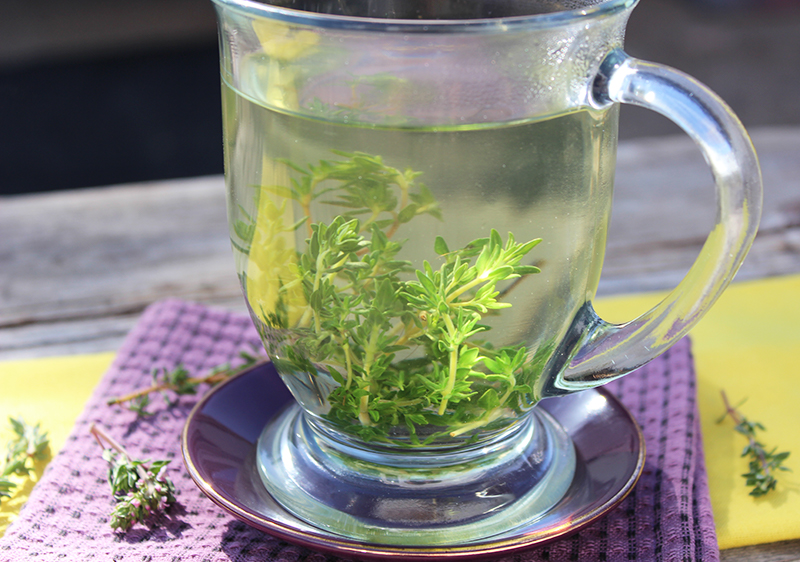
11) Thyme for Food Preservation
Thyme leaves, and their high thymol content, have long been valued for their antibacterial and purifying properties.
Before modern refrigeration, thyme was sometimes utilized as a food preservative to offer protection from food spoilage.
It is still reported to be used today in the food industry for such purposes.
In ancient Egypt, it was likewise used in embalming practices.
12) Thyme and Its Use as a Culinary Spice
The herb thyme, either fresh or dried, is of course a commonly utilized culinary spice. Used in many dishes from stews to sauces and stuffing’s to salad dressings, thyme is a "long time" favorite in kitchens around the globe.
If you don't have fresh "thyme to spare", you can purchase
high-quality dried organic thyme from suppliers like Mountain Rose
Herbs, one of our personal favorites.
Precautions:
Therapeutic doses of thyme should not be used during lactation or pregnancy. It is always best to seek the advice of a qualified healthcare practitioner before using thyme for medicinal purposes if you have a serious health condition or are taking any medications.
Shop Related Products (About Affiliates & Amazon Associate Paid Links)
Affiliate Disclaimer: This section contains affiliate product links. If you make a purchase through our recommended links, we receive a small commission at no additional cost to you. Thanks for the support.
